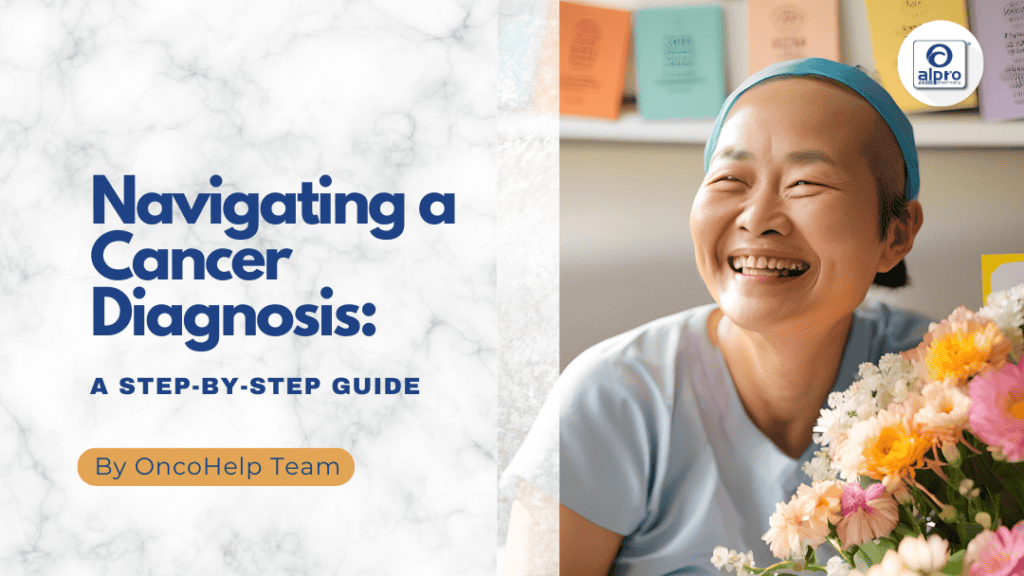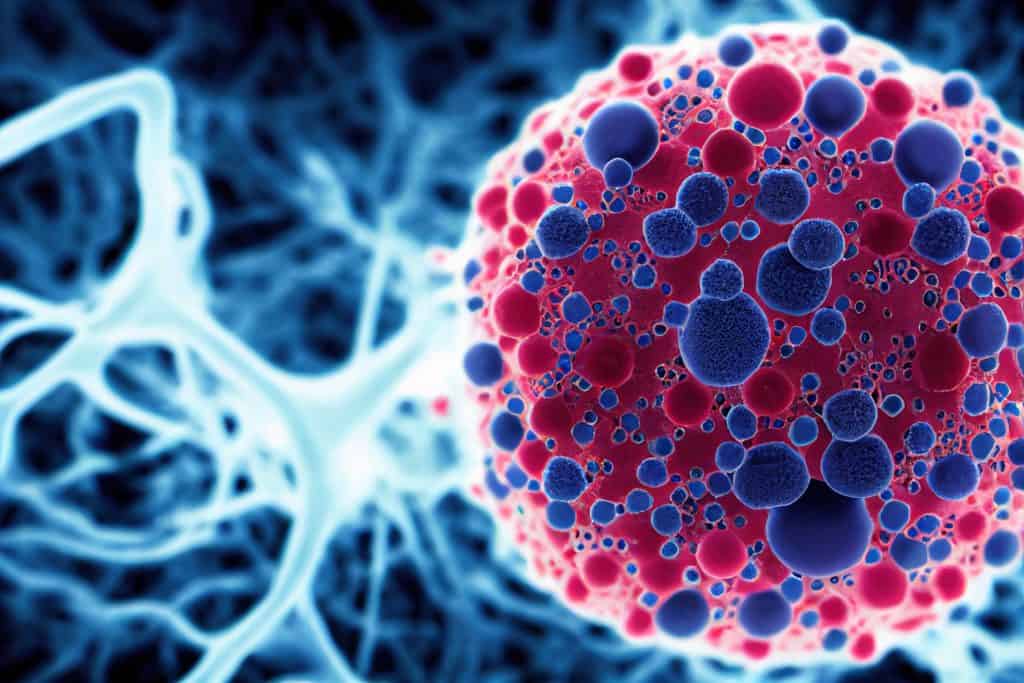Get Our Latest Updates
Alpro Group Head Office & Distribution Centre
Unit V1-A, Lot 45880, Jalan Techvalley 3/2, Sendayan Techvalley, 71950 Bandar Sri Sendayan, Negeri Sembilan.
doctor

Navigating a Cancer Diagnosis: A Step-by-Step Guide
A cancer diagnosis is life-changing, and while it’s natural to feel overwhelmed, you don’t have to face it alone. Understanding your options, having a clear plan, and accessing the right resources can help you regain control and move forward. At Alpro Pharmacy, we are here to guide you every step of the way with support and services that comply with Malaysia’s healthcare regulations.
Cancer is a journey that requires strength, knowledge, and the right support system. Whether you’re newly diagnosed, undergoing treatment, or caring for a loved one, taking actionable steps early on can make a significant difference in how you navigate this experience. By empowering yourself with information, leaning on a dedicated healthcare team, and embracing the resources available, you can tackle this challenge with confidence and resilience.
Here’s a detailed, step-by-step guide to help you navigate this challenging journey.
Learning that you have cancer is overwhelming. It’s normal to feel shock, disbelief, fear, sadness, or anger. Allow yourself time to process these emotions and understand your feelings. Cry if you need to, write in a journal, or talk to someone you trust.
Leaning on a support system is vital during this time. Confide in family members, close friends, or a counselor to help you process your emotions. In Malaysia, organizations like the National Cancer Society Malaysia (NCSM) provide counseling and emotional support to individuals coping with cancer.
Above all, remind yourself that it’s okay to feel uncertain. You don’t need to have all the answers right away—this is just the beginning of your journey.

Understanding your specific diagnosis can help you regain some sense of control. Ask your doctor to explain your type of cancer, its stage, and how it may progress. Write down your questions and take notes during appointments to ensure you fully understand the information provided.
Some helpful questions to ask include:
Avoid relying on unverified online information or hearsay. Use reliable sources like the Ministry of Health Malaysia’s website or resources provided by certified cancer organizations. Your doctor and healthcare team are your best sources for accurate, personalized information.
Your healthcare team will guide you through diagnosis, treatment, and recovery. This team usually includes oncologists, radiologists, surgeons, dietitians, nurses, and counselors. Together, they will create a personalized treatment plan tailored to your condition and needs.
To build trust, ensure you:
In Malaysia, the National Cancer Institute and other specialized cancer care centers provide access to multidisciplinary teams that collaborate to offer the best care possible. Having a strong healthcare team gives you the confidence that you are receiving the best possible treatment.

Cancer treatments are highly individualized, and the right plan depends on your type and stage of cancer, overall health, and personal preferences. Common treatments include:
Each option has its benefits and potential side effects. Discuss with your oncologist to understand the goals of each treatment and how they align with your overall health and preferences.
Make a treatment timeline to track appointments, medications, and follow-ups. Staying organized is critical to managing your treatment effectively.
Cancer treatment can affect your appetite, digestion, and energy levels. Maintaining a healthy diet is essential to support your body during treatment and recovery. Work with a licensed dietitian to develop a meal plan tailored to your specific needs.
Key nutrition tips include:
Incorporate physical activity into your routine if your doctor permits it. Light exercises like walking, stretching, or yoga can boost energy, improve mood, and support overall recovery.
Coping with a cancer diagnosis goes beyond managing physical symptoms. Emotional well-being is just as important. Feelings of fear, anxiety, or depression are common, and it’s important to address them.
Here’s how you can seek emotional support:
Several organizations in Malaysia, including MAKNA and NCSM, offer emotional support services and programs for cancer patients and their families.
Cancer treatment often involves multiple appointments, tests, and medications. Keeping track of these details ensures you stay on top of your care.
Consider these tips to stay organized:
Being proactive in managing your care not only reduces stress but also helps you feel more in control of your journey.
While cancer treatment focuses on your physical health, taking care of your emotional and mental well-being is equally important. Self-care helps you maintain resilience and positivity throughout your journey.
Simple self-care practices include:
Remember, healing is not just about physical recovery—it’s about nurturing your whole self.

Navigating cancer treatment can be complex, and having the right support is key to feeling confident throughout the process. That’s where Alpro Pharmacy comes in. With our OncoHelp services, we offer personalized assistance to ensure that your treatment plan runs smoothly.
Here’s how OncoHelp can support you:
With Alpro Pharmacy by your side, you can focus on your recovery while we take care of the details. Visit your nearest Alpro Pharmacy or contact us to learn more about how our OncoHelp services can make your cancer journey more manageable.
Ministry of Health Malaysia (MOH) – Official website and cancer-related information on diagnosis, treatment options, and healthcare guidelines in Malaysia.
Link to Ministry of Health Malaysia website
National Cancer Society Malaysia (NCSM) – Provides information on cancer support, emotional counseling, and cancer treatment options.
National Cancer Society Malaysia
MAKNA (Majlis Kanser Nasional) – A non-governmental organization that offers cancer-related support, including counseling services and funding assistance for cancer patients.
MAKNA
American Cancer Society – Offers a comprehensive guide on cancer diagnosis, treatment options, and emotional support for cancer patients.
American Cancer Society
National Institute of Cancer (NCI) – Provides detailed information on cancer types, stages, and treatment options.
National Cancer Institute
Cancer Research UK – Provides detailed cancer care and emotional well-being advice.
Cancer Research UK
Get Our Latest Updates
Alpro Group Head Office & Distribution Centre
Unit V1-A, Lot 45880, Jalan Techvalley 3/2, Sendayan Techvalley, 71950 Bandar Sri Sendayan, Negeri Sembilan.
Alpro Alliance Sdn. Bhd. (1015456-V)